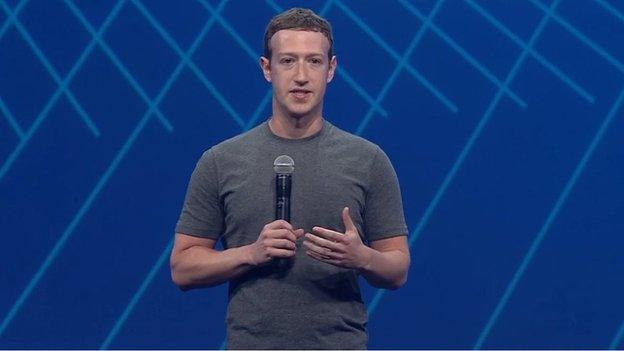Facebook’s next big thing: Bots for Messenger
- Published
- comments
Mark Zuckerberg said bots offered advantages over using dozens of specialised apps
Humans, we've got company.
No longer satisfied with being the dominant network for our humble species, Facebook is now courting a different type of user: bots. And eventually you'll be able to talk to them as if they were your mates.
"Could you transfer £100 to my brother, please?" you might one day ask your bank. Or maybe, "Do you have any blue shirts in my size?"
Sometimes they'll ask you things too, with something like: "Do you want to hear today's top stories?"
Right now the conversations will be structured - with Messenger bots suggesting things you can say. But the goal is natural conversation, and it could be a huge step.
Messenger chief David Marcus says Facebook has taken steps to prevent hackers abusing the bots
If what Facebook has promised today at its F8 developer conference comes to pass, the effect on our everyday lives could be enormous. It could be, according to Facebook's head of messaging David Marcus, a return to more personal interactions.
"Before the internet era, everything was conversational," he told the BBC.
"But then we traded conversations for scale."
One of the bots being launched on the service today will be from Spring, an artificially intelligent concierge service.
"Spring is actually going to build an experience where everything is automated except customer service," Mr Marcus explained.
"It's bot for 99.9%, but then if you have a problem, a human can actually jump in and sort out your problem.
"That's the best of both worlds."
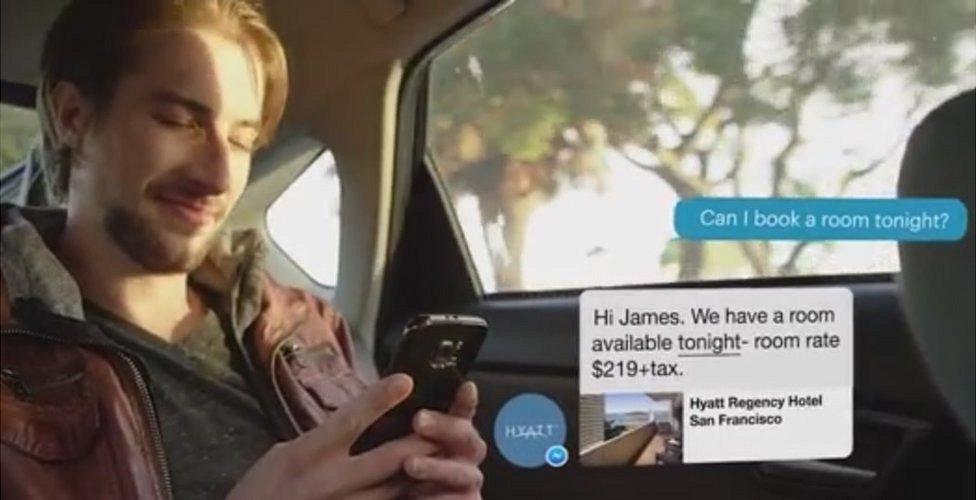
Facebook wants people to use bots instead of apps to make bookings and purchases
Gold rush
There are obvious concerns to all this, and I'll get to those in a second, but first here's how it will work.
Messenger Platform, as Facebook calls it, is the firm's latest application programming interface (API).
An API is a way for companies like Facebook to give external developers the access and know-how to make things on their platforms.
It's a big opportunity - the company's first API, which allowed anyone to create apps on Facebook, led to the birth of multi-billion dollar companies including Farmville creator, Zynga.
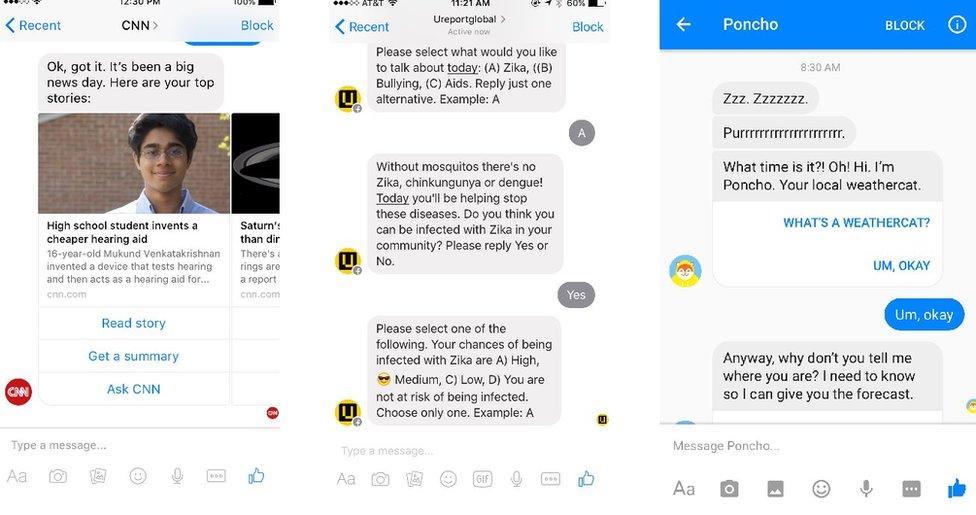
CNN, Unicef and Poncho are among the organisations to offer Facebook Messenger bots
There are already bots on Facebook - you can book an Uber through it in the US, for instance - but the crucial news today is anyone is now free to make their own bot. Which is why some are seeing today's announcement as the start of another Facebook gold rush.
The bots will live within Facebook Messenger - an app that was spun off from the main Facebook app in 2014 in a manner which angered users but makes a lot of sense now as Messenger looks set to become a bigger deal than just instant messaging.
While developers will be free to create their own uniquely intelligent bots, they will all be fundamentally powered by Facebook's Bot Engine. Think of it as the centralised brain.
As time goes on, Bot Engine should get smarter and more used to human interaction meaning, in theory, that all the bots will collectively get smarter and more "human".
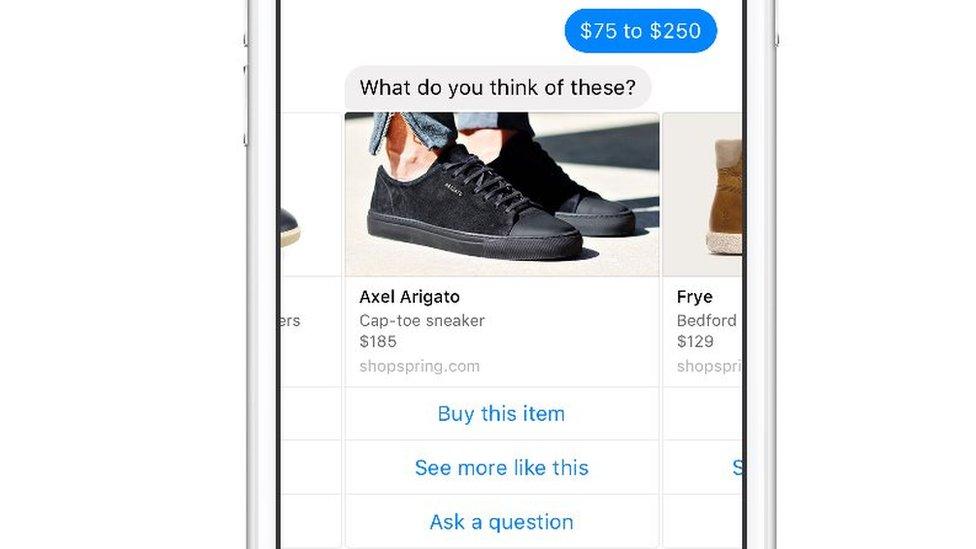
Retailers have designed bots to be personal shopping assistants
It's the Bot Engine, a constantly evolving product of almost a billion people's interactions, that might give Facebook a massive advantage over others in the bot game such as Apple, Google and Microsoft.

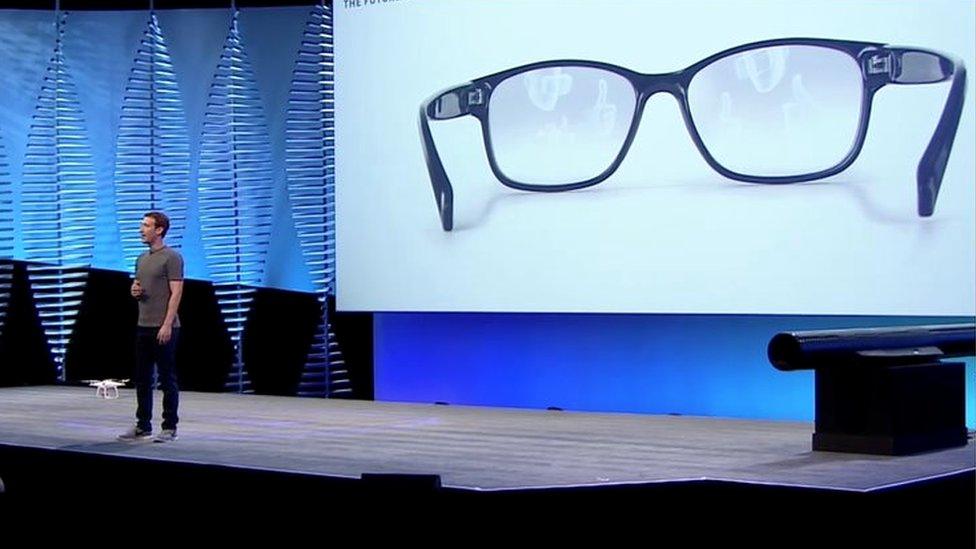
Mr Zuckerberg says his firm wants to move from virtual reality into augmented reality
Other announcements at F8 included:
A tab for live video feeds will be added to Facebook's mobile app, and a wider range of devices including drones will be able to stream footage to the platform
A new virtual reality camera - the Facebook Surround 360 - which can record up to two hours of 360-degree footage in 3D at up to 60 frames per second. It will be targeted at professional video-makers. The specifications are being made available to others to manufacture
An ambition to create augmented reality glasses within the next 10 years that will allow people to see graphics superimposed over their views. Mr Zuckerberg said today's experience of watching a large-screen TV might one day be replicated by downloading a $1 app to the equipment
A new "save to Facebook" button that will appear on third-party websites. If clicked the contents of a page will be saved to Facebook so that they can be referred to later. This will compete with apps including Pocket and Instapaper that offer a similar function
Facebook's chief product officer Chris Cox unveiled the Surround 360 camera

Facebook is a platform that users already talk on constantly.
It's a platform that already knows what you like, what you want, and what you may desire in the future.
Bringing bots into this mix could be a real game-changer.
Friction-free
Or it might be a disaster.
First - the obvious: Users might not like the idea of companies acting like people in spaces usually reserved for conversations with our friends.
This will probably be made more irritating given that Facebook plans to let businesses find you on Messenger if they already have your mobile phone number.
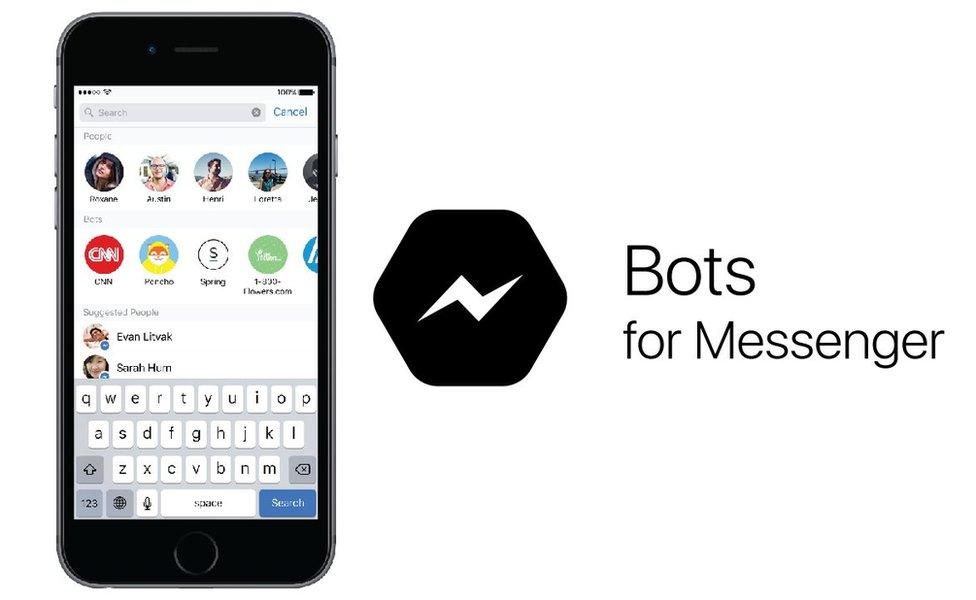
Facebook Messenger's bots can provide information, help with shopping and play games
Then again, another way of looking at that "feature" is that it'll be fast and easy to find the companies you already interact with in the real world.
Cue calls for boycotts of Facebook, and raging that the service will be irreparably destroyed by this new feature. But it will probably pass - history tells us that Facebook's users rarely know what's good for them.
But a real concern must lie with security. Unauthorised access to your Facebook account used to mean a dodgy status update or two, but now a breach could have truly devastating consequences.
With one Facebook log-in, a hacker could have friction-free access to a whole host of accounts you may have set up on Messenger.
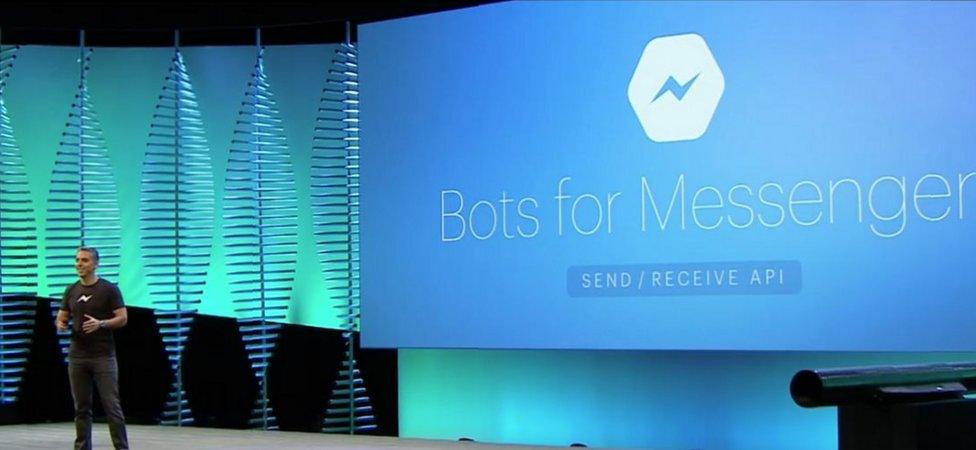
Mr Marcus said that interacting with the bots can prove to be addictive
Having everything under the one Messenger roof presents unprecedented risk for our personal data, surely?
"Yes and no," says Mr Marcus.
"The reality is when you think about the number of people who are on the Facebook platform, and how well protected their account is compared to general practice around the world, we feel good that we have best-in-class protections that will protect those accounts better than most companies at a smaller scale can.
"We'll continue to build better and better systems. We always recommend that every user turns on two-factor authentication that we offer everyone.
"I certainly have."
Two-factor authentication on Facebook requires you to enter a code which has been texted to your mobile phone, as well as your password, to log in.
Despite Mr Marcus's clear advice, Facebook will not be enabling two-factor authentication by default, even though it is far more secure.
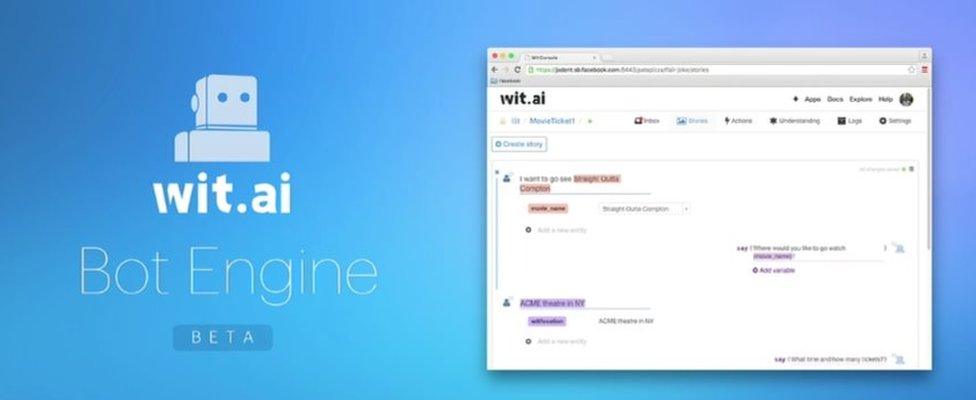
Facebook has developed a tool to help organisations create bots
The truth is, if it did, people would complain. It's inconvenient. But it's safer. Your call.
Top five tussle
Microsoft's boss Satya Nadella declared recently that "bots are the new apps".
And while we'll have to wait a little to see if Facebook's bots can live up to the expectations set at F8, it's rapidly becoming clear that the app era is winding down. Or more specifically, the era of having dozens of apps on your phone is coming to an end.
Mr Marcus pointed out a recent study by Forrester Research which estimated that 80% of the typical US smartphone user's time was spent in just five apps. Five!
Of the millions available to us, we just get stuck into using a few.
Bots within those big apps will perhaps be the only way some companies will be able to attract our business through our smartphones.
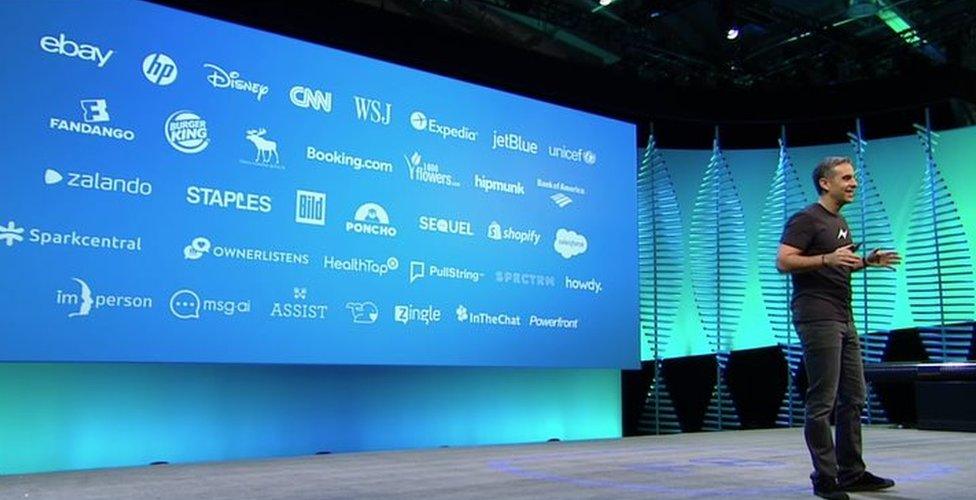
Mr Marcus said that several iconic brands were already involved in the Bot rollout
Mr Marcus has said Facebook has no plans to take a cut of transactions made through Messenger. Money will instead be made through advertising - pay more, and get your bot seen by more potential users.
So brace yourself, everyone. The bots are coming, and they desperately want to be your new best mate.
Follow Dave Lee on Twitter @DaveLeeBBC, external and on Facebook, external
- Published13 April 2016
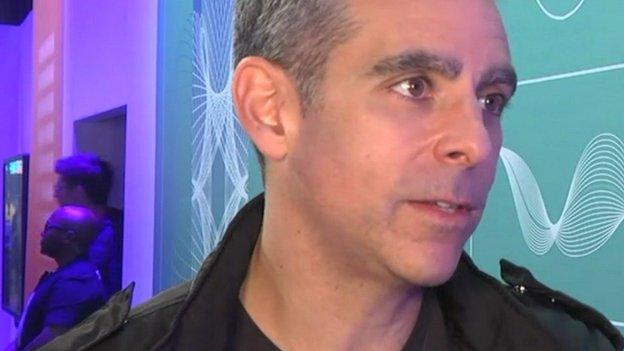
- Published12 April 2016
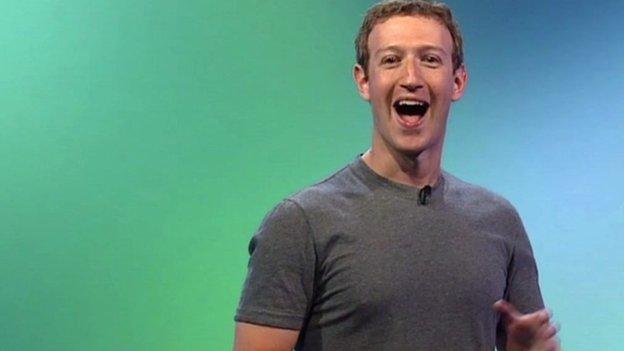
- Published12 April 2016

- Published12 April 2016
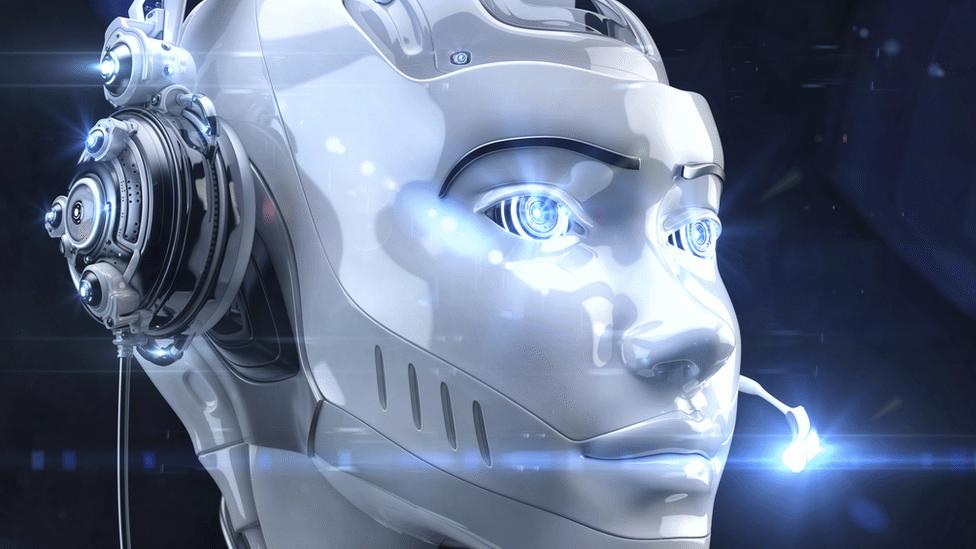
- Published6 April 2016
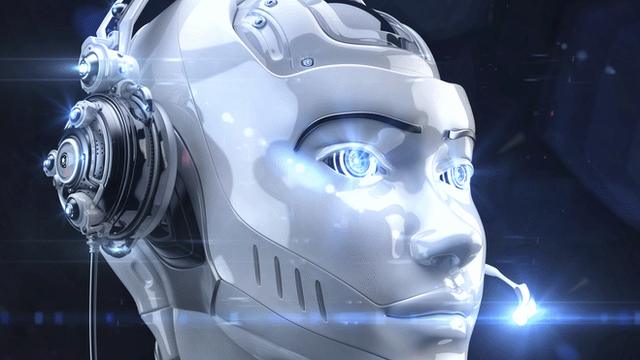
- Published25 March 2015
